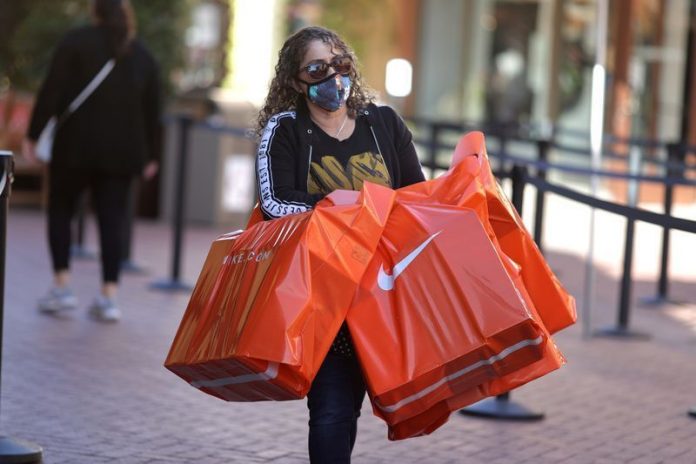U.S. retail sales rose 3% during this year’s expanded holiday shopping season from Oct. 11 to Dec. 24, a report by Mastercard Inc said on Saturday, powered by a pandemic-driven shift toward online shopping.
U.S. ecommerce sales jumped 49% in this year’s holiday shopping season, according to Mastercard SpendingPulse report, underscoring the COVID-19 pandemic’s role in transforming customers’ shopping habits.
Holiday e-commerce sales made up 19.7% of total retail sales this year, the data showed, noting that options such as buy online and pick-up-in-store, contactless technologies were key for retailers.
The holiday shopping season can account for the majority of certain retailers’ annual sales, but the health crisis meant several retailers including Walmart Inc and Target Corp, faced with capacity constraints in certain stores, rolled out their holiday promotions early.
E-commerce giant Amazon.com Inc also pushed back its annual summer promotional event to October, marking a longer-than-ever holiday season for retailers who missed out on sales for several weeks during the lockdowns earlier this year.
“This was a healthier holiday season than many had forecast,” senior advisor for Mastercard Steve Sadove told Reuters in an interview.
Sadove believes the digital trend will continue to grow in 2021, with smaller retailers also embracing new technology to offer customers new ways to shop.
People spending longer at home due to extended work-from-home and remote learning policies have fueled demand for home decor and home-improvement products, with retail sales in the home furniture and furnishings category jumping 16.2% according to the report.
Electronics and appliances also rose 6% during the period, as a reduction in spending on dining out, travel and leisure encouraged shoppers to make other purchases.
Sales of apparel and jewelry slumped overall, but e-commerce sales rose 15.7% and 44.6%.
The SpendingPulse report tracks spending by combining sales activity in Mastercard’s payments network with estimates of cash and other payment forms but excludes automobile sales.
Source – Reuters
















